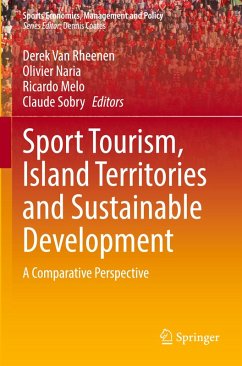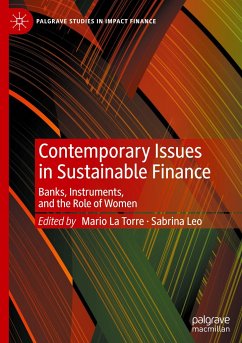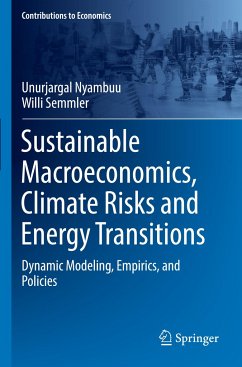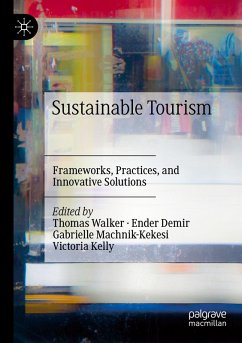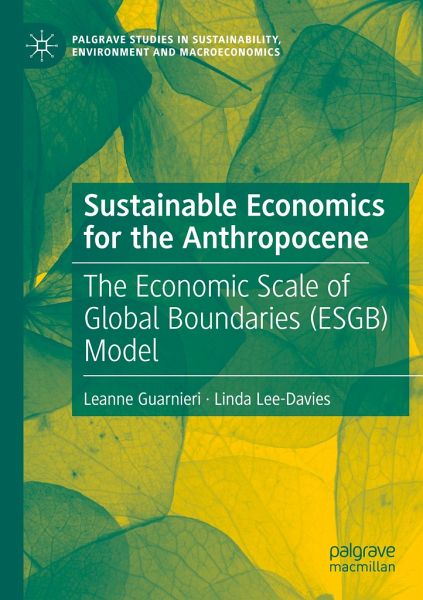
Sustainable Economics for the Anthropocene
The Economic Scale of Global Boundaries (ESGB) Model
Versandkostenfrei!
Versandfertig in 6-10 Tagen
91,99 €
inkl. MwSt.
Weitere Ausgaben:

PAYBACK Punkte
46 °P sammeln!
This book examines both the need for sustainable economics and the financial practices that will underpin it. The link between rising inequality and the threat to social sustainability is highlighted to create the Economic Scale of Global Boundaries model, which realigns GDP to include quantifiable environmental and social economic gains and losses. The model is applied at both the national and company level to show its practical application for policy and everyday business practice. The impacts of inequality, declining economic growth and the impending deadlines of the Sustainable Development...
This book examines both the need for sustainable economics and the financial practices that will underpin it. The link between rising inequality and the threat to social sustainability is highlighted to create the Economic Scale of Global Boundaries model, which realigns GDP to include quantifiable environmental and social economic gains and losses. The model is applied at both the national and company level to show its practical application for policy and everyday business practice. The impacts of inequality, declining economic growth and the impending deadlines of the Sustainable Development Goals are also discussed in detail.
This book aims to highlight how principles of the circular economy and ESG can be utilized to help meet net zero targets. It will be relevant to students, researchers, organizations, and policymakers interested in environmental economics and sustainability and is written to provoke predictive thinking on the global changes ahead.
This book aims to highlight how principles of the circular economy and ESG can be utilized to help meet net zero targets. It will be relevant to students, researchers, organizations, and policymakers interested in environmental economics and sustainability and is written to provoke predictive thinking on the global changes ahead.





